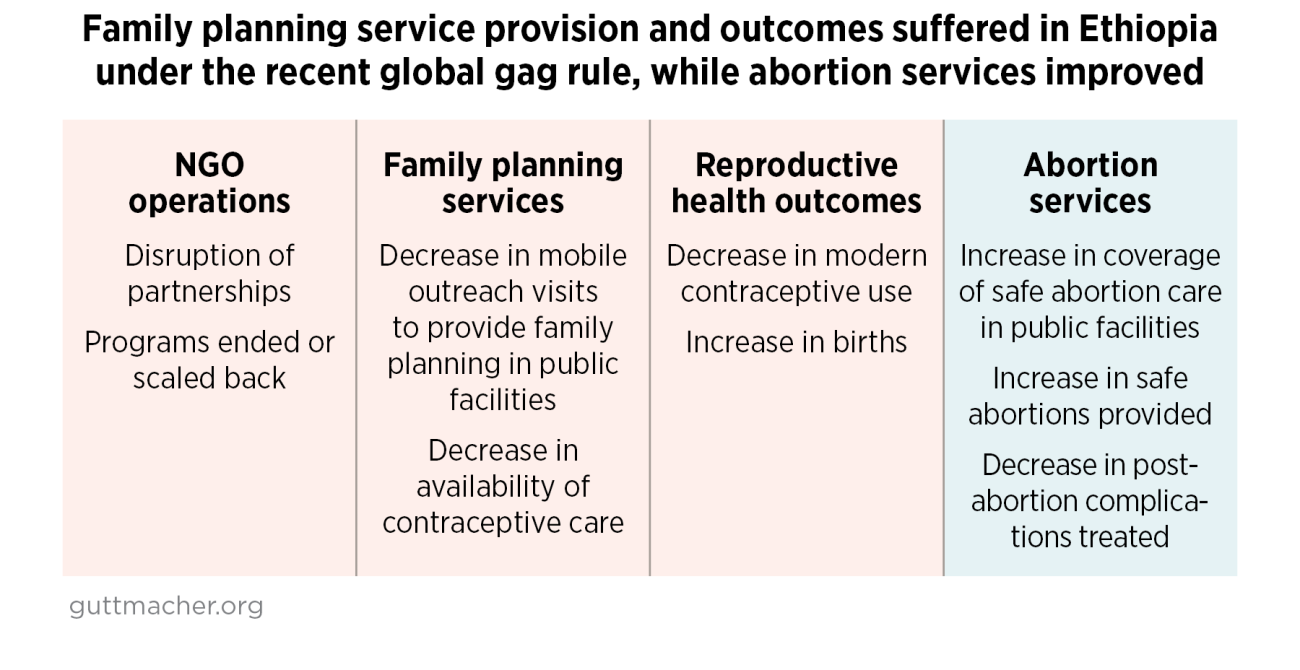The Trump administration’s “global gag rule,” though now defunct, is likely to have lasting effects on sexual and reproductive health in Ethiopia. From May 2017 to January 2021, the policy prohibited US global health funding for non-US NGOs that provide abortion services; offer abortion information, counseling or referrals; or advocate abortion liberalization. In May 2019, the administration expanded the policy to restrict funding to only those NGOs whose subgrantees also complied with the terms of the policy (whether or not the subgrantees received US funding). Though the policy allowed US support for NGOs using non-US funds to provide abortion in cases of rape, incest or a threat to the pregnant woman’s life, lack of clarity on this point likely led to restrictions on even these services. Versions of the global gag rule have been repeatedly instated by US presidents from the Republican party and rescinded by Democratic presidents since 1984.
This fact sheet presents findings from a longitudinal study assessing the impacts of the recent global gag rule on sexual and reproductive health in Ethiopia. The study measured service delivery and outcomes between 2017—just before full implementation of the policy—and early 2020. The data come from 361 health facilities that provide family planning services and a community-based panel of 4,909 women of reproductive age (15–49). The study covered Addis Ababa, Afar, Amhara, Oromia, SNNPR and Tigray—regions that, together, account for more than 90% of the country’s population.



